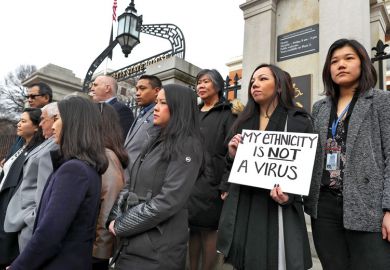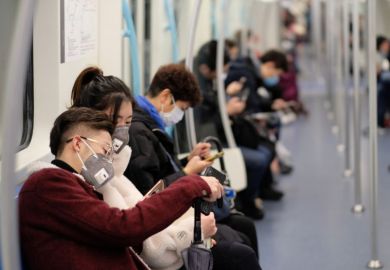Education agents in the subcontinent are urging Australian education providers to delay their midyear recruitment, saying a July intake will be all but impossible.
In a petition to government agencies and representative body Universities Australia, the Association of Australian Education Representatives in India (AAERI) asked universities to delay second semester admissions by six weeks.
It said travel restrictions in most countries would saddle students with coronavirus testing and quarantine obligations, while Australian university representatives were currently unable to attend education fairs in South Asian countries - events currently cancelled, in any case.
Moreover, India’s partial lockdown has led to the widespread closure of schools, universities and English language coaching and testing centres. Other services vital to students’ preparation of visa applications, such as banks, are operating in slow mode due to work-at-home requirements.
The call is largely academic because Australia has closed its borders to all non-nationals, in a measure that prime minister Scott Morrison indicated may be in place “over the next six months or as long as it then takes”. That restriction alone makes it unlikely that South Asian students would be able to reach Australia before September.
But AEERI says universities need to consider the issue now. Otherwise, Australia-bound students will be forced to consider switching to institutions in the UK and Canada where classes commence in September.
“Proactive steps taken at this time can reassure the market and create some buffer,” the petition says. “Even if the travel restrictions continue for six months, we can still have an intake at end August or early September.”
University international offices looking for a soft landing from the coronavirus will need to focus on the subcontinent, which was rapidly overhauling China as a source of new higher education students before the coronavirus sent enrolments into freefall.
Last year, international commencements rose 19 per cent from India, 12 per cent from Nepal and just 3 per cent from China, according to education department statistics. The five South Asian countries of India, Bangladesh, Nepal, Sri Lanka and Bhutan collectively contributed 35.3 per cent of Australia’s fresh overseas higher education students - just behind China’s 36.7 per cent.
Department of home affairs statistics suggest Australia was already battling to maintain market share following the UK’s extension of post-study work rights last September. Student visa applications lodged offshore by Australia-bound Indians and Nepalis dropped sharply in the latter half of last year.
Meanwhile, the National Union of Students (NUS) has called on the Australian government to extend the A$550 (£281) fortnightly income support payment supplement, which was granted to domestic students in a late night parliamentary sitting, to their international counterparts.
The NUS also wants overseas students’ visas extended and restrictions on part-time study removed. And it says universities must reduce their fees and extend the period before they are billed, while health insurers must cover their coronavirus-related health expenses.
“International students who already pay a premium for education in Australia are now paying for rent, insurance, visa costs and living expenses for an online degree they could receive anywhere in the world,” said NUS president Mollie Willmott.
The Innovative Research Universities network said many foreign students could struggle to make ends meet during the crisis. “International students have few support options if they lose their part-time jobs,” it noted.
Register to continue
Why register?
- Registration is free and only takes a moment
- Once registered, you can read 3 articles a month
- Sign up for our newsletter
Subscribe
Or subscribe for unlimited access to:
- Unlimited access to news, views, insights & reviews
- Digital editions
- Digital access to THE’s university and college rankings analysis
Already registered or a current subscriber?








